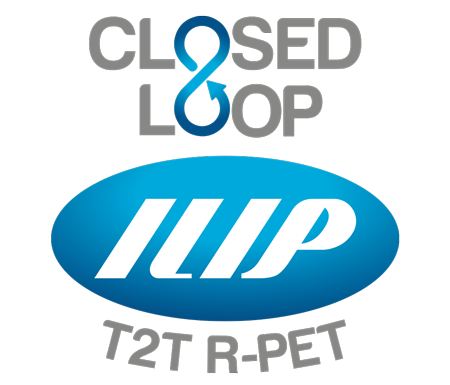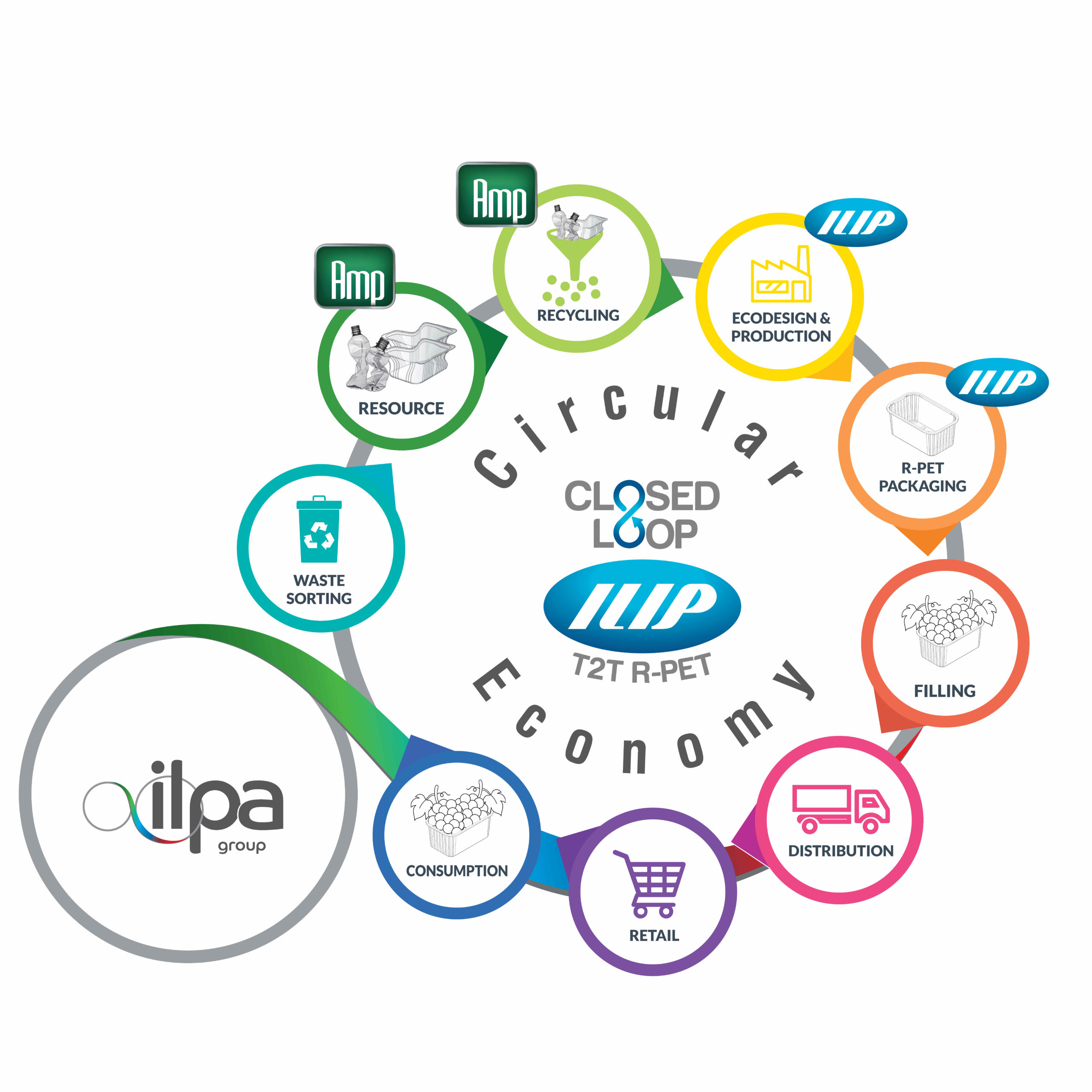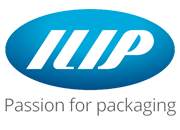
Recycle
THE VERTICAL INTEGRATION OF R-PET: A CLOSED LOOP THAT OPENS UP TO THE ENVIRONMENT.
T2T R-PET® is the acronym of “tray to tray” in recycled PET, of R-PET trays produced by recycling post-consumer R-PET or PET trays. This pursues the goal of the “closed loop”, not only within the ILPA Group, thanks to the vertical integration of recycling, but also thanks to the recycling of PET food packaging. All ILIP’s R-PET packaging is produced not only with bottles, but also with recycled PET trays and punnets.
ILPA Group and the R-PET Closed Loop
The ILPA Group, of which ILIP is a member, has vertically integrated the R-PET supply chain and has a cutting-edge recycling plant in AMP Recycling Ferrara, where it mechanically recycles post-consumer PET food containers and bottles to obtain, in line with the circular economy approach, secondary raw materials in the form of flakes, which it can then use in its products.
AMP Recycling is EuCertPlast and EuCertPlast Food certified and also has an EFSA-authorised decontamination process used to treat PET post-consumer flakes to obtain materials suitable to come into direct contact with food (aka “Food Grade R-PET”).
ILIP and the ILPA Group companies, with a recycling capacity of 60,000 tonnes of PET per annum, help:
- reduce the environmental impact of the products they recycle and those they manufacture;
- achieve the Italian plastic packaging recycling targets, operating in their territory of choice, Emilia-Romagna;
- achieve Europe’s circular economy targets;

COREPLA
Watch the video by Corepla (National Consortium for the Collection, Recycling and Recovery of Plastic Packaging) on closed loop “tray to tray” recycling.
R-PET: The ILIP Approach
ILIP is a European leader in the production of packaging and the converting of plastic and bioplastic, helping improve environmental sustainability in the communities in which it operates and where it is established and of the served markets.
Here and now.
All in complete compliance with European legislation governing employment, health, the environment and consumer protection.
It is only by avoiding unilateral statements characterised by what is today termed “greenwashing” that we can make a concrete positive impact on the environment and communities involved directly.
This is why our approach is based on verified and verifiable data and declarations.
